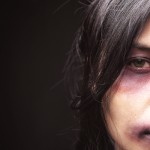La. wants to take guns away from domestic abusers
22nd January 2019 · 0 Comments
By Susan Buchanan
Contributing Writer
Louisiana is second highest in murders of women by men in the nation, after Alaska, according to federal data. These Pelican State murders are mainly with guns, and the predominant victims are African-American women. In recent years, new laws in Baton Rouge have added to Washington’s legislation to reduce gun use in domestic disputes. The state wants to make sure that abusers don’t keep their weapons.
Senate Bill 231, authored by Senator J.P. Morrell of New Orleans and signed by Governor John Bel Edwards in May, requires that local authorities develop policies to remove firearms from people prohibited from having them because of domestic abuse convictions and protective orders. The bill was one of 79 signed into various laws by Edwards last May 25, and it became Act 367, effective in October.
This January, Act 367 ushered in a requirement that firearms be removed from domestic abusers. To do that, parishes are looking to a process developed over the last decade in Lafourche Parish, southwest of New Orleans. Firearms in this case include pistols, revolvers, rifles, assault rifles, shotguns and machine and sub-machine guns. 
In 2009, the Lafourche Sheriff’s Office started mailing notices to people federally prohibited from having guns because they’d been convicted of domestic abuse or had relevant protective orders against them. That was the first in a series of steps developed by LPSO Lieutenant Valerie Martinez-Jordan in Thibodaux.
Protective orders are issued in Louisiana for threats to physical and emotional safety and for stalking, among other reasons.
New legislation in 2014 included Louisiana Revised Statute 14:95.10, prohibiting convicted domestic abusers from having firearms and concealing weapons for ten years after they’ve completed a sentence. And under Louisiana Revised Statute 46:2136.3, a 2014 public welfare law, certain protective orders made it illegal to possess firearms during the order’s duration.
In response to the 2014 laws, sheriff’s deputies in Lafourche began removing firearms, or assisted in transferring them to third parties, following a conviction or the issuance of a qualifying protective order, Jordan said. “A third party is someone over the age of 21, who doesn’t live in the same home as the prohibited possessor, who passes a background check and can legally possess a firearm,” she said.
LPSO partnered with local stakeholders, including clerks of court, judges and district attorneys, advising them to notify its social services unit of any convictions and protective orders that would disallow firearms possession. Deputies then contacted the prohibited individuals in courts, or mailed them notices, or visited their residences and places of employment, Jordan said.
As sheriffs statewide begin implementing the new Firearm Transfer law this month, “it will take people awhile to embrace change,” Jordan said. The law requires that sheriffs’ offices, clerks of court and district attorneys develop forms, policies and procedures, detailing how the process will be conducted.
Last September and October, Jordan and Jefferson Parish assistant district attorney Sunny Funk made sixteen visits around the state to explain Act 367, share the protocol that LPSO developed and provide training.
Last spring, Senate Bill 231 passed with no opposition in the Louisiana House and little in the Senate in a climate of concern about firearms, Jordan said. Last April’s Waffle House shooting in Tennessee’s Nashville area, leaving four dead, followed the murder of 26 people at a Sutherland Springs, Texas church in November 2017. The Texas shooter had been convicted of domestic violence five years earlier.
Other changes under last year’s Act 367 include mandatory reporting of fraudulent firearm and ammunition purchases. Louisiana’s licensed gun dealers must report an attempt to buy by someone found ineligible when the store contacted the National Instant Criminal Background Check System or NICS. The dealer reports the attempted purchase to the sheriff of the parish where it happened and to the Louisiana Automated Victim Notification System. NICS, run by the Federal Bureau of Investigation, is operating during the current government shutdown.
During her interview for this story, Lieutenant Jordan got a phone call from a sporting goods store, reporting that a customer had just been denied a desired gun purchase by the FBI’s background check system. “Our data shows that this reporting by dealers, in addition to our parish’s no-tolerance policy toward domestic violence, works,” Jordan said. “Since we started our program in 2009 with the Bureau of Alcohol, Tobacco, Firearms and Explosives, Lafourche Parish has had no domestic homicides by a prohibited firearms possessor,” she said. The parish has taken a multidimensional approach toward domestic abuse, with backing from Sheriff Craig Webre and from stakeholders beyond the sheriff’s office.
A coalition of groups pressed to get Senate Bill 231 passed last year. “This new law is critically important in taking guns out of the hands of perpetrators with a history of violence, and we support its full implementation by sheriffs across the state,” Mary Claire Landry, executive director of the New Orleans Family Justice Center on Loyola Avenue, said last week. “We’ll continue to advocate for accountability for law enforcement, prosecution and the courts to ensure the safety of victims, especially during the time when they’re trying to leave violent relationships and safely move forward with their lives. The first year of leaving that relationship is the most dangerous.”
Statistics reveal the nature of threats to women. In FBI data released in September by the Violence Policy Center, a nonprofit in the nation’s capital, 58 females were killed by males in Louisiana in 2016. The state’s homicides of females by males in 2016 amounted to 2.42 per 100,000, after rising in the previous five years. When the victim-to-offender relation could be identified, 98 percent of Louisiana women killed by men were attacked by someone they knew.
Of Louisiana’s 58 female victims in 2016, 34 were African American, 23 were white and one was unidentified. For the state’s female homicides by males in which the weapon was known, 69 percent were killed with guns, mainly handguns; four with knives or other cutting instruments; two by a blunt object and four by bodily force.
In Alaska, the worst state for domestic violence, female victims in 2016 were killed mainly by handguns and were predominantly American Indians and Alaskan Natives, according to the Violence Policy Center.
In Lafourche Parish, Lieutenant Jordan is available to meet with officials and advocacy and community groups across the state to discuss gun removal under Act 367 and LPSO’s firearm transfer process. She can be reached by phone at 985-449-4479.
When out at the movies, Louisianans sometimes worry about shooters after two patrons were murdered and nine people were injured at a theater in Lafayette in mid-2015. The shooter had a history of domestic disputes and stalking and a past protective order against him.
This article originally published in the January 21, 2019 print edition of The Louisiana Weekly newspaper.



